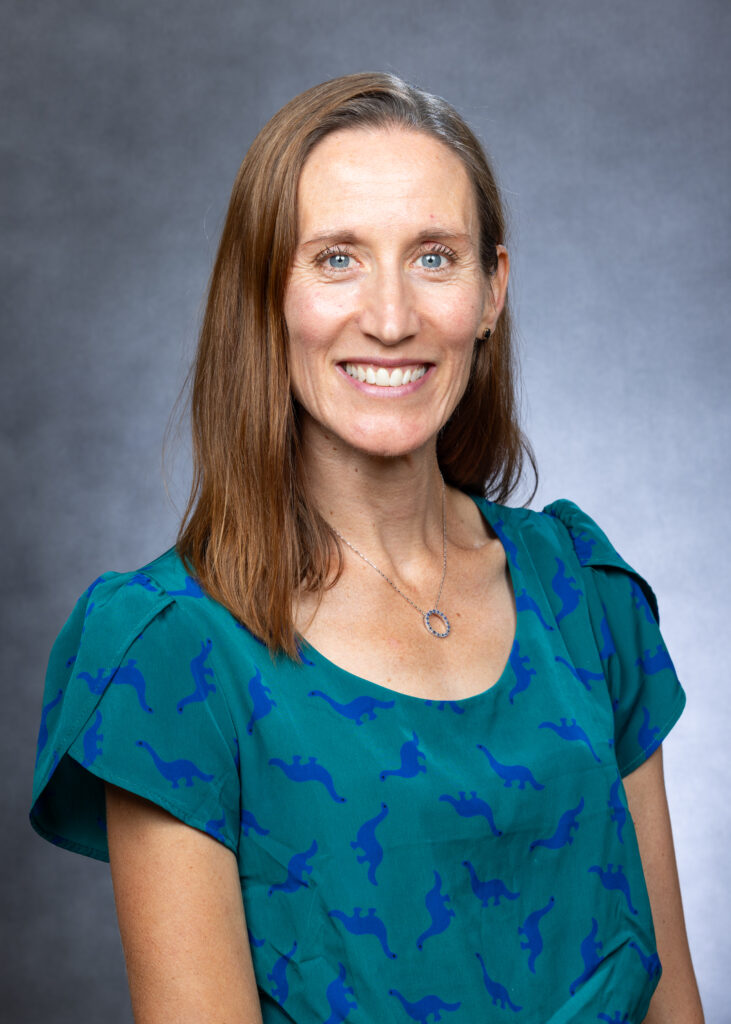Five Questions with Brett Romano-Ely

1. What motivated you to join the Health Sciences faculty at the School of Nursing and Health Sciences?
I was really excited for the opportunity to be part of a new program and be on the team that would help shape the classes, research, and character of the program. I also appreciated how Health Sciences integrated into the well-established Health Policy & Management program, so despite being a ‘new’ program, we had a group of tremendous, experienced faculty to help guide us. Everyone I met during my interview seemed so genuinely excited and invested in their work, and that really solidified my desire to join this program.
2. You just finished your first semester teaching at PC; what was that experience like?
It was busy, but great! The Health Sciences faculty decided to teach HSC 101 using a team approach so that we could coordinate to create a consistent experience for students. This included details like having centralized office hours, one set of due dates between sections, and a feeling like they could ask any of us a question and get the same answer. The three of us (Dr. Matt Ely, Dr. Maggie Morrissey-Basler, and myself) bring different perspectives and ideas, but we work together really well. And of course, the students are fantastic! I loved buzzing around office hours before the exam and seeing them all working together to tackle the content.
3. You’ve conducted some groundbreaking research within the field of exercise science; what draws you to that aspect of human physiology?
I have to admit that my initial interest in exercise science came from my background as an athlete. I just wanted to figure out how to get better, stay healthier, and run faster. But the entire research process is so enthralling that I found myself expanding my research interests to range from elite athletic performance to clinical populations and more biomedical research. I love the way an individual project or single scientist might only focus on a small piece of the puzzle, but you get to be part of a process and community where those pieces fit together into something more groundbreaking.
4. You were recently awarded a Riccobono Academic Resilience Faculty Fellowship mini-grant; Can you tell us a little bit about your project?
The fellowship application I submitted was for HSC 102: Anatomy and Physiology II. Our lab experiences provide a unique opportunity to connect physiology and psychology, so that students can ‘measure’ stress in variables like heart rate and blood pressure, and see the real-time effects of stress management techniques on those outcomes. We will also discuss the physiological impacts of self-care behaviors as they relate to immune function, mental health, and chronic disease prevention. Understanding the integration of physical and mental health is so empowering, and so important for our students going on to careers in healthcare. We hope to develop self-care and stress coping skills in our classroom that they can draw upon in the future when dealing with true life or death situations in a hospital, heartbreaking diagnoses, or just the mental fatigue and burnout that can come from work in patient care.
5. When you’re not inside the classroom what do you like to do for fun?
When I’m not in the classroom or the lab, you can usually find me on the track! I am a lifelong runner, and enjoyed competing in college and beyond. At my best, I qualified for four consecutive Olympic Trials Marathons and represented the U.S. in international competition. While I’m not quite at that level anymore, I still enjoy pushing my body and still feel like I get to be my own little physiology experiment every time I line up for a race. I also love spending time with my family (which also involves running to keep up with our 4-year-old daughter!), trying to grow things in our garden, and coming up with new recipes to cook or bake.





